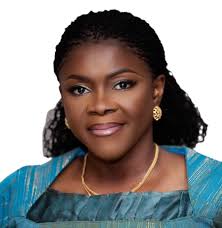The National Commission for Civic Education (NCCE), has urged Ghanaians to refrain from vote selling and buying.
According to the NCCE, the deep-seated canker has perpetuated political corruption, thereby hindering the country's progress.
According to the Assin Fosu Municipal Director of NCCE, Mr Paul Tetteh, many political aspirants resort to purchasing votes to secure their positions and subsequently recoup their investments through corrupt practices, thereby impeding the nation's growth.
Speaking in an interview with Ghana News Agency, he said, “No amount of monetary inducement should sway voters from exercising their civic duty with integrity.”
Vote-buying involves offering gifts, money, or other incentives in exchange for votes during elections.
Mr. Tetteh referenced instances during the recent parliamentary and presidential primaries of the New Patriotic Party (NPP) and the National Democratic Congress (NDC) where the practice was prevalent.
The methods of vote-buying vary, ranging from distributing money and food items to promising employment opportunities, scholarships, and other financial incentives.
He said the practise of vote-buying was punishable under the Representation of the People Act, 1992 (Act 284), which explicitly prohibits the practise of vote-buying, stating that any person who offers, gives, or receives money or gifts in exchange for votes commits an offence punishable by law.
In addition, the Criminal Offences Act, of 1960 (Act 29) criminalises bribery in elections, further clarifying the legal consequences of vote buying and cautioned the public to eschew it.
On the part of the media, Mr Tetteh underscored the necessity for practitioners to refrain from facilitating politicians' use of their platforms for insults and incitement of violence as the nation approaches the December elections.
He identified the culture of insults, misinformation, exchange of money for votes and ethnic divisive campaigning as threats to democracy in Ghana.
As the country prepares for the upcoming election, he called on the public to prioritise unity and constructive dialogue, emphasising the significance of engagement in the decision-making processes to hold leaders accountable for their actions.
Latest Stories
-
I’ve no plans to leave comedy for movie production, says Basketmouth
38 mins -
Akufo-Addo seeks to use Bawumia to complete Akyem Agenda– Asiedu Nketiah
46 mins -
‘Bawku conflict politicised for electoral gains’ -Martin Amidu alleges
48 mins -
‘Let industry players play the game ‘ – AOMC boss slams political interference in oil sector
1 hour -
Let’s learn from ExxonMobil, high flyers must lead the way for mergers – AOMC Boss
2 hours -
‘So many regulations, yet corruption prevails’ – Dr Riverson Oppong on OMC oversaturation
2 hours -
At least 24 dead after two boats capsize off coast of Madagascar
3 hours -
Madina MP lauds White Chapel Youth Group for championing peace ahead of elections
3 hours -
Man United settle for draw at Ipswich Town in Amorim’s first game in charge
3 hours -
GPL 2024/2025: Prince Owusu screamer earns Medeama win over Young Apsotles
4 hours -
BBC visits mpox clinic as WHO says DR Congo cases ‘plateauing’
4 hours -
Burning old TVs to survive in Ghana: The toxic trade in e-waste
4 hours -
Perfume boss admitted he ignored Russia sanctions
4 hours -
Wicked proves popular as opening set to be biggest for Broadway film
4 hours -
Nominee for agriculture secretary completes Trump cabinet
4 hours

